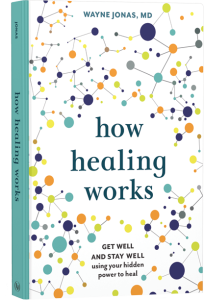Did you ever keep a diary? The kind with a lock and key or a spiral notebook you kept under the mattress as a kid? When you think of journaling, you might think of recording your daily thoughts and deepest secrets.
While that can be satisfying, there’s more than one way to journal. In this post, we look at an integrative health practice called “therapeutic writing.” You may also see it called journaling and expressive writing. By any name, this mind and spirit practice can soothe body and soul as you write out your thoughts, feelings, and worries. And tap into guidance and solutions from your unconscious.
What is therapeutic writing?
Therapeutic writing is about the process rather than the product. No one is going to critique your spelling, literary style, content, or lack thereof. Journaling this way is a well-known tool for self-care.
Journaling can also be a tool that helps you care better for others, because supporting your own mind, spirit, and body helps you do that. See our free guide The Caregiver’s Companion to learn more. It includes a free journaling guide for caregivers.
Therapeutic writing is like exercise in its most enjoyable form. It’s not about flat abs, taut legs, or a personal best. Instead, it’s about movement that frees you up–in this case, from worry, stress, anxiety, or confusion.
When you do therapeutic writing, no one is looking over your shoulder. It can be:
- Done in the time you have. Try setting a timer for five, 10, or 20 minutes.
- No need for neat handwriting or complete sentences.
- Done in any format. Do you love writing on legal pads? Using a lovely bound book and fancy pen? Writing with a tablet, laptop, or desktop computer? Go for it. If you have arthritis or another condition that affects your ability to write, you may want to try voice recognition software. Therapeutic speaking!
We have written about journaling before as a “safe place” to deal with trauma. Learn more.
How do I get started?
We’ve provided a free Therapeutic Writing for Self-Care tool developed by expert Sarah Saffian, LCSW-R, MFA. As a teacher of the form of personal writing called “memoir” as well as a therapist, Sarah is the perfect person to offer these ideas.
You may also want to try 15 Journaling Exercises to Help You Heal, Grow, and Thrive. Or visit the Greater Good in Action Science Center for tips on expressive writing, a link to the research on its benefits, and a free podcast by a real person who has tried this practice.
Are you managing stress that produces depression, anxiety, or difficulty with social interactions? If so, you may want to try writing about positive things. A 2020 study of young people who were “socially inhibited” found that those who wrote about positive topics felt less depressed and anxious than those who wrote about neutral topics.1
Journaling as part of a gratitude practice
The effects of a specific type of therapeutic writing called “gratitude writing” have also been studied for mental health effects. In one study, adults were assigned to three groups.2 Each group did something different. The first group used writing to express their thoughts and feelings about stressful experiences. The second group wrote a letter expressing gratitude to someone. The third group did not write but attended therapy.
After four weeks and again at 12 weeks into the study, those in the gratitude writing group had the highest general mental health scores. If the idea of gratitude writing appeals to you, an online search of “gratitude journal” will reveal dozens of books, tips, and strategies.
How often should I journal to manage stress?
Like physical activity, journaling works best as a regular practice. One study showed that college students who were journaling regularly felt less depressed. However, two months later, when they were no longer journaling, they no longer felt as positive.3 The concept of regular therapeutic writing is another reason to choose a format you enjoy and to try different tools and prompts. Our guide, Therapeutic Writing for Self-Care is a great place to start.
Help! I’m too stressed to journal
When you write to manage stress, you don’t need to wait for the ideal writing situation. As poet Gloria Anzaldúa wrote, “Write in the kitchen, lock yourself up in the bathroom. Write on the bus … on the job or during meals, between sleeping and waking.” Or you and your kids can make “journal time” a family activity. It could even become part of your homeschooling day or after-school homework time—a sneaky way to teach your children self-care through therapeutic writing.
Though therapeutic writing is done just for you, some of the more social folks among us may want to share our reflections with a family member or close friend. My wife started writing a memory of her deceased father when she was a child. Soon it came a set of essays that she printed and shared with her family members allowing all of them to know him anew and in different ways. However, says Sarah Saffian, “Whether you share your work is up to you. Therapeutic writing is a deeply personal process, so for it to be profound and meaningful just to you is enough.” Ultimately, you are writing to heal, and the healing that writing creates will benefit others as well as you.
Learn more about journaling to manage pain and recover from past trauma in our earlier posts.
Journaling Through Pain & Trauma: Writing About a Past Traumatic Experience
Journaling Through Pain & Trauma: Writing About the Experience of Pain
References
1. Allen SF, Wetherell MA, Smith MA. Online writing about positive life experiences reduces depression and perceived stress reactivity in socially inhibited individuals. Psychiatry Res. 2020;284:112697. doi:10.1016/j.psychres.2019.112697
2. Y. Joel Wong, Jesse Owen, Nicole T. Gabana, Joshua W. Brown, Sydney McInnis, Paul Toth & Lynn Gilman (2018) Does gratitude writing improve the mental health of psychotherapy clients? Evidence from a randomized controlled trial, Psychotherapy Research, 28:2, 192-202, DOI: 10.1080/10503307.2016.1169332
3. Sloan DM, Feinstein BA, Marx BP. The durability of beneficial health effects associated with expressive writing. Anxiety Stress Coping. 2009;22(5):509-523. doi:10.1080/10615800902785608

Take Your Health Into Your Own Hands
Drawing on 40 years of research and patient care, Dr. Wayne Jonas explains how 80 percent of healing occurs organically and how to activate the healing process.

